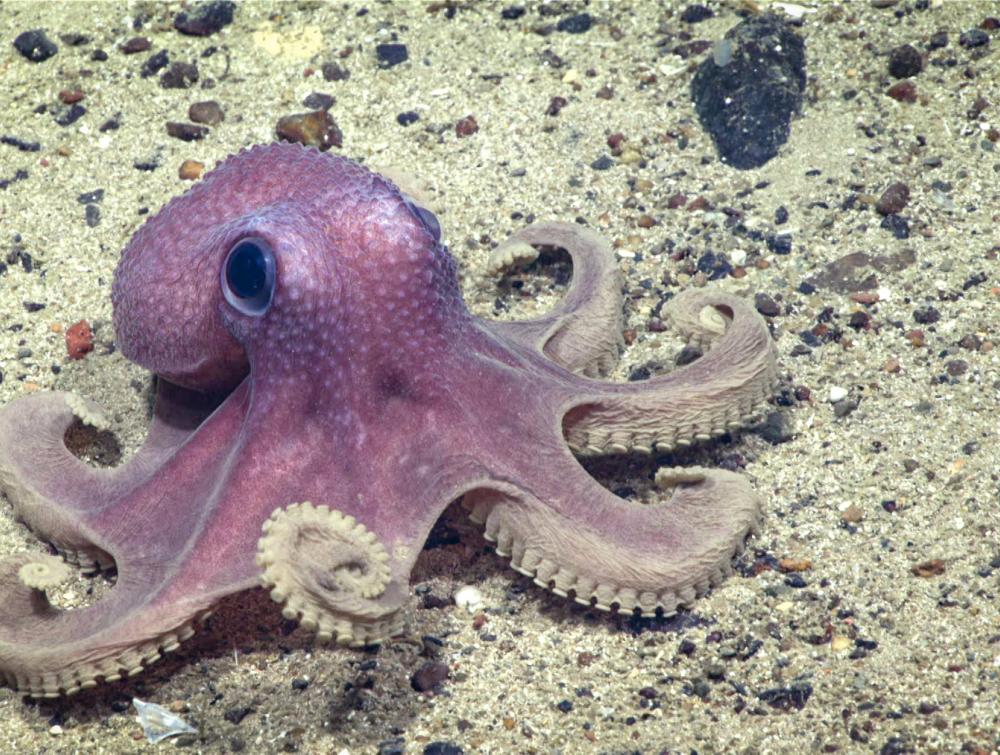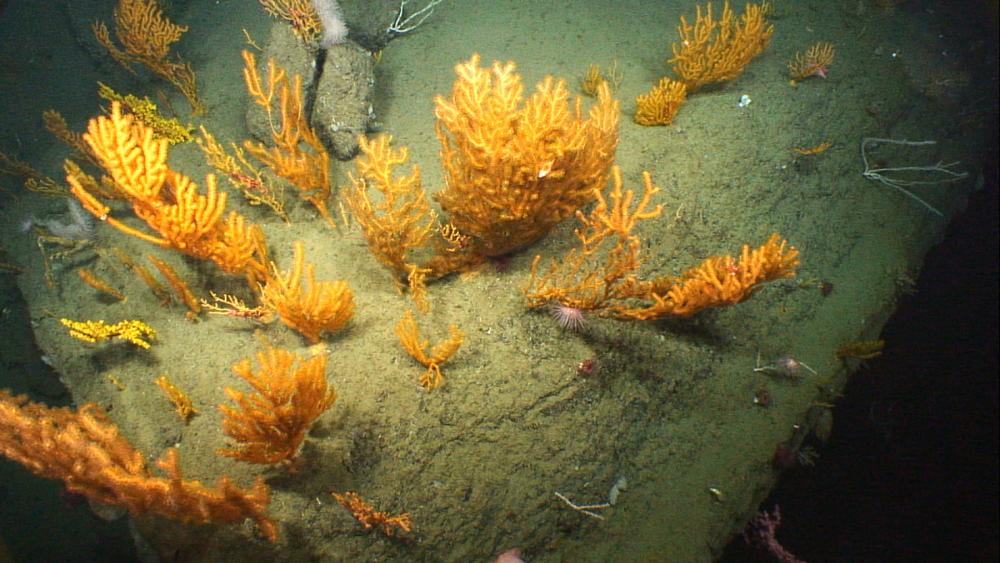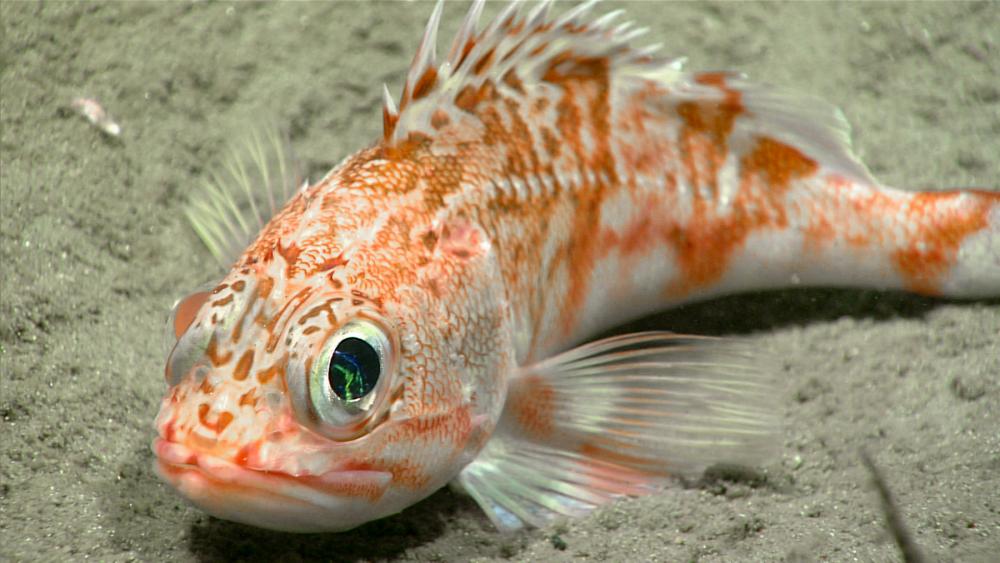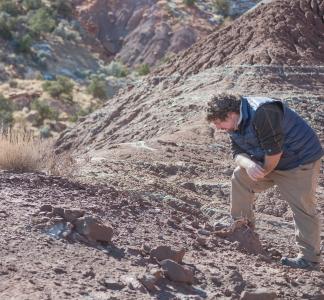Trump set to shred Atlantic Ocean monument protection

Deep-sea octopus on Bear Seamount within the Northeast Canyons and Seamounts Marine National Monument off the coast of New England
NOAA Office of Ocean Exploration and Research
Will effectively roll back Northeast Canyons and Seamounts designation
With the nation consumed by pain and protest, President Trump is signing a proclamation rolling back protections for the Northeast Canyons and Seamounts Marine National Monument.
"At a time when our country is in need of healing and unity we are once again watching bad decision-making rip apart science-based protections in the face of overwhelming public opposition. It's appalling that President Trump is taking illegal actions to gut environmental protections for our ocean treasures – protections that ensure these waters will be healthy and safe for future generations," said Jamie Williams, president of The Wilderness Society, in a statement.
Trump travelled to Maine to sign the order while people across the U.S. are rightly focused on racial inequality, the ongoing COVID-19 pandemic and sharp economic decline. It’s only the latest in a long list of recent environmental attacks launched under cover of national and international crisis.

Orange deep-sea corals in Oceanographer Canyon within the Northeast Canyons and Seamounts Marine National Monument off the coast of New England
NOAA Office of Ocean Exploration and Research
Fishery revenue increased after monument designation
Trump is trying to justify this attack by claiming the monument, which was protected by then-President Obama in 2016, was bad for fishing. In fact, a 2018 study of data from the region showed that catch and revenue from some species has actually increased since the designation of the monument, while for others—tuna and swordfish—the numbers have stayed about the same. Overall, revenues for the fishery increased 27 percent in the year after monument designation.
Climate change and the intense push to fish, drill and mine in our oceans has put delicate ecosystems at risk
Additionally, in the long term, the monument is actually an important piece of policies to preserve ocean life in the Atlantic. Over the years, the intense push to fish, drill and mine in our oceans has put delicate ecosystems at risk. It has been estimated that marine life populations have declined by nearly 50 percent in the last 40 years, and experts say the worst may be yet to come; we might even be on the verge of a "major extinction event" in ocean ecosystems worldwide. Climate change is set to hit oceans hard, and protecting marine monuments should help boost resilience against various stressors.
"At a time when our country is in need of healing and unity we are once again watching bad decision-making rip apart science-based protections in the face of overwhelming public opposition. It's appalling that President Trump is taking illegal actions to gut environmental protections for our ocean treasures – protections that ensure these waters will be healthy and safe for future generations," said Jamie Williams, president of The Wilderness Society, in a statement.
Northeast Canyons and Seamounts protect biodiversity
The Northeast Canyons and Seamounts encompasses a series of underwater canyons and seamounts (inactive, submerged volcanoes jutting from the ocean floor) near where the continental shelf plummets into the depths of the Atlantic Ocean. This area benefits from oxygen- and nutrient-rich cold sea water as well as the fact that much of it has been spared from human disruption, making it a priceless place for scientific study and preservation of rare species.
Deep-sea ecosystems such as those found in the Northeast Canyons and Seamounts Marine National Monument are in greater jeopardy than ever before
Forming a crescent along the edge of the continental shelf, on the so-called Georges Bank, the Oceanographer, Gilbert, Lydonia, Nygren and Heezen canyons are home to colorful deep-sea corals, sponges, lobster, brittle stars, cod, herring and flounder.
The Bear, Physalia, Retriever and Mytilus seamounts, which are thought to have formed as much as 100 million years ago, are just as vital. These submarine mountains are where migrating whales rest during their long journeys, fish spawn and dozens of species of coral grow (due to their isolation, seamounts are often habitat for species found nowhere else on earth).

Northeast Canyons and Seamounts National Marine Monument
NOAA Office of Ocean Exploration and Research
Unfortunately, deep-sea ecosystems such as those found in the Northeast Canyons and Seamounts Marine National Monument are in greater jeopardy than ever before, as technological advancements allow fishing at extreme depths, including destructive bottom-trawling and dredging. Many fish around the canyons and seamounts reproduce infrequently, making their populations extremely vulnerable to overfishing, and trawling can damage the coral beds on which a variety of species rely. Trump’s rollback is an attack coming at the worst time, striking at ecosystems that are extremely vulnerable.
“Instead of showing real leadership to address the profound public health and economic crises and systemic inequity in our society, the President has made clear his priority is to push ahead his anti-environmental agenda and hand out favors to industry allies regardless of the circumstances or the law." said Williams.
New fossil discoveries show paleontology depends on protecting places like Bears Ears
Mason Cummings
What about us? 9 endangered and threatened wildlife species in Trump-targeted monuments
Keith Williams
Under cover of COVID: Trump ramps up environmental attacks
Joyce N. Boghosian, The White House, Flickr



